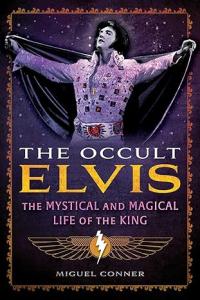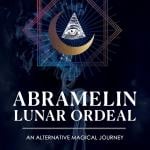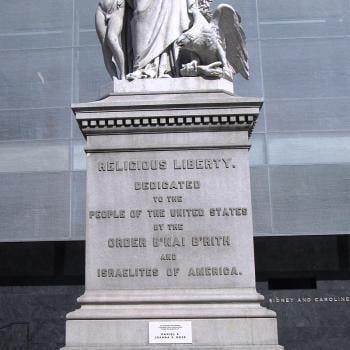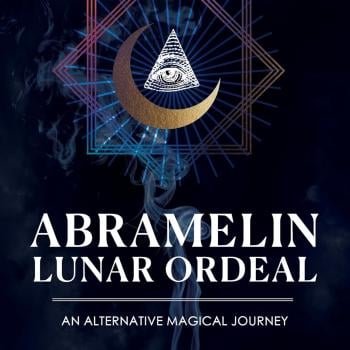Review of The Occult Elvis: The Mystical and Magical Life of the King by Miguel Conner
I am very grateful to Miguel Conner for writing Occult Elvis. There is no doubt that Elvis was the most successful solo artist in history, and so this issue does not need to be addressed. He is commonly perceived as a conservative Southern Christian, which is true. However, he did not limit himself to such a single dimensionality and had a broad range of spiritual interests. While these non-Christian spiritual interests have been discussed previously in other books, Mr Conner’s collation and interpretation is quite unique.

From the outset, Mr Conner makes a startling claim:
“Elvis was not just a one-of-a-kind rock-and-roller. He was the greatest magician America ever produced.”
It would be very easy to dismiss this claim, but Mr Conner devotes an entire well-researched book to justifying it.
Obviously, we’re not dealing with stage magic but something genuinely esoteric. Numerous definitions of magic can be found, but Mr Conner chooses those of John Michael Greer, Dion Fortune, Don Webb and a tip of the hat to Aleister Crowley. Essentially, Mr Conner concludes that magic means bringing things into manifestation through supernatural or uncanny means and also transforming to achieve maximum potential. He claims that Elvis encompassed all this and “in ways not matched by any practitioner in Western culture.”
Taking a step back for a minute, can any magician claim to have made as great an impact on the world as Elvis? The average magician experiences the supernatural, casts spells and hopefully undergoes a transformation into a better balanced person. How many magicians impact the lives of millions?
The flipside of this suggests that those who impact the lives of millions knowingly, or unknowingly, are tapping into spiritual forces giving them abilities beyond that of the average person. There are persistent claims on social media that various celebrities are resorting to occult powers or joining occult organizations. Claims have been made about powerful individuals in politics and business who dabble with dark forces. How true are these claims? How is it the certain individuals are able to accomplish so much more than the average person, and impact numerous people? There is definitely ample material to research here, and perhaps even write a book.
There is so much to ponder in Mr Conner’s book and so I’ll only focus on the sections which jumped out at me.
Elvis’ twin brother died at birth. Eliis grew up “a shy and lonely child who often stuttered” who often visited the grave of his older twin with his father. At age four or five, Elvis started hearing a voice in his mind, which he recognized as Jesse. As an adult, Elvis frequently referred to this voice as his “psychic twin” or “original bodyguard.”
“He contended that this voice instructed him to love, care for, and understand other humans and their perspectives. Jesse became his conscience or alter ego.”
Mr Conner concludes:
“From an esoteric standpoint, Jesse became the mask of Elvis’s daemon (or daimon), an ancient Greco-Roman concept of a higher, timeless self or spirit guide that helps a mortal navigate life and eventually reintegrate with the divine realms. This symbiotic entity also possesses the spectral LinkedIn profiles of the guardian angel: genius, animal guide, and higher self, among others, depending on cultures across the globe.”
In ceremonial magic, initiates strive for access to their Holy Guardian Angel (HGA) or Higher Self as it is their link to the divine. The jury is still out on whether this is an entity assigned to us at birth or an aspect of ourselves. It seems that in the case of Elvis we’re dealing with an entity assigned at birth. This entity may have been Jesse or was masquerading as Jesse.
A turning point for Elvis’ spiritual path occurred when he met Liberace:
“When Liberace met Elvis in 1956, as the King’s career was exploding, he explained that he had also lost his twin at birth. This tragedy fueled Liberace’s desire for flamboyance, overworking, and overachievement. Instead of telling Elvis how to curb this wild spirit, Liberace told him to lean into it and just be unique in his success.”
Paraphrasing Matt Marshall in “Elvis Presley—A Man That Simply Wanted to Play The Blues” Mr Conner wrote:
“In fact, devilish blues wizardry might have kickstarted his career. As the story goes, Elvis was auditioning for Sam Phillips at Sun Studios in June of 1955—and the session proceeded poorly. Every genre he performed was underwhelming. At the end of an aggravating day and with everyone in the studio about to call it a night, Elvis allowed the Devil to possess him. The nineteen-year-old let it all out and launched into a wild, unhinged performance, singing a rhythm-and-blues song: Arthur Crudup’s “That’s All Right (Mama).” Phillips was floored, knowing he had caught lightning in a bottle with a singer tapping directly into Black magic (pun intended on my part, but that’s the Crossroads for you). Elvis’s career officially started with what would become his first hit single.”
Should this be thought of as a literal demonic possession, or the influence of a muse? Either way, a profound transformation occurred which launched Elvis’ career.
Apart from the blues, Elvis was deeply influenced by Gospel Music, which surely brings an angelic influence into the mix? As an aside, Elvis’s three Grammys were for his gospel albums, and he boasted that he knew almost every religious song ever written.
Elvis loved comic books and had encounters with UFOs. He once told an audience:
“When I was a child, ladies and gentlemen, I was a dreamer. I read comic books, and I was the hero of the comic book. I saw movies, and I was the hero in the movie. So every dream that I ever dreamed has come true a hundred times.”
In April 1964, Elvis acquired a new hairdresser, Larry Geller, who just happened to have spent years studying and practicing alternative spiritual traditions. Geller became Elvis’ guru supplying him with copious books and knowledge for the next two and a half years. So great was his influence that in November 1965, Elvis told Geller that “he was ready to embrace the nonmaterial life fully and wanted to be initiated into Kriya Yoga (which, in itself, took two years of austere-embracing practice).”
Mr Conner cites many examples of Elvis becoming an accomplished healer. Here is one:
“Healing others became almost a full-time job once Elvis embraced the occult. At Graceland he healed the arthritis and other ailments of his grandmother, Minnie Mae. The ritual involved Larry Geller and him placing their hands on Mae’s forehead, praying, and visualizing blue.”
The rest of the book compiles numerous anecdotes of Elvis’ spiritual involvement along with compelling interpretations.
To sum up my feelings, Elvis In life was a complex multidimensional person. In death he is now a myth. All we can do is refer to the memories of those who knew him. Each of them saw part of his totality and may have had an agenda in sharing their memories. It is evident that Elvis was further down the alternative spirituality rabbit hole than many of his fans realize. Readers will have to make up their own minds whether they are comfortable with Mr Conner’s conclusions.
Tony Mierzwicki
Author of Hellenismos: Practicing Greek Polytheism Today and Graeco-Egyptian Magick: Everyday Empowerment.
https://www.amazon.com/Hellenismos-Practicing-Greek-Polytheism-Today/dp/0738725935
https://www.amazon.com/gp/product/1905713037/ref=dbs_a_def_rwt_bibl_vppi_i1
















